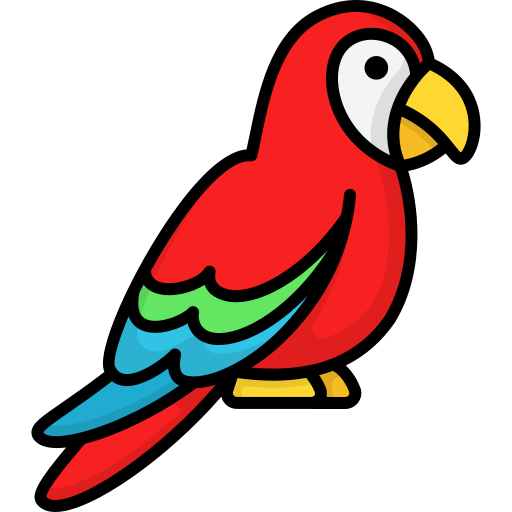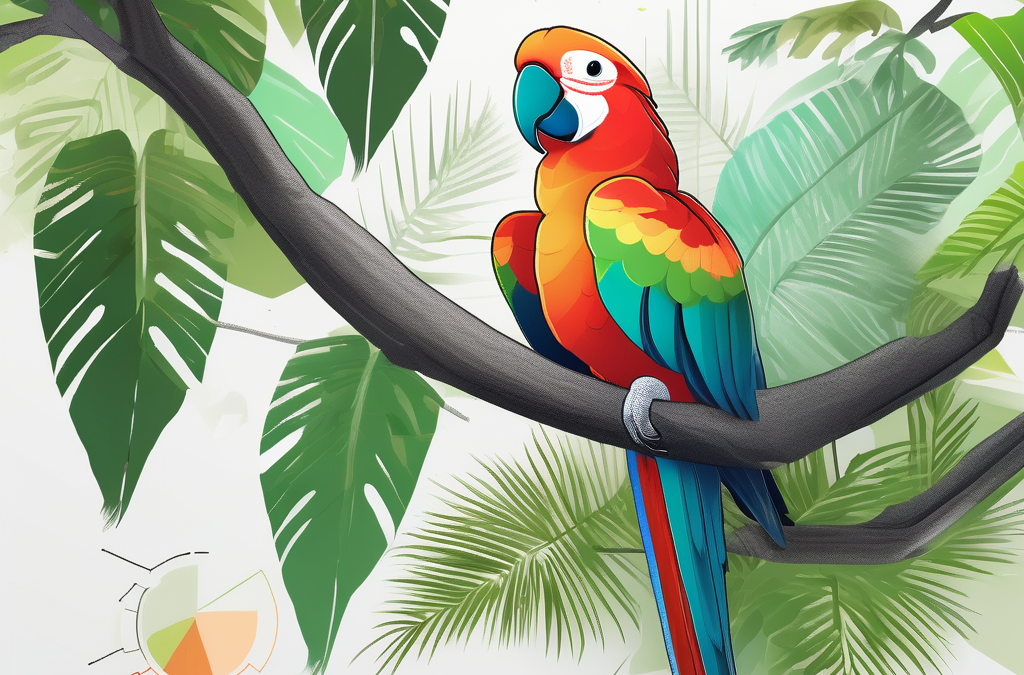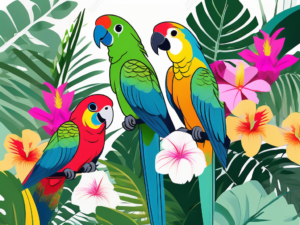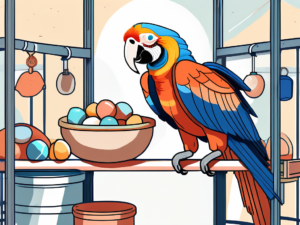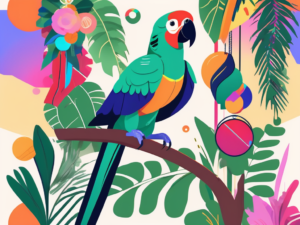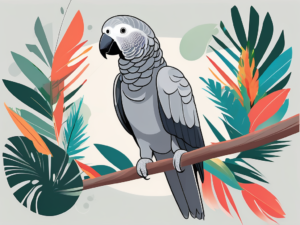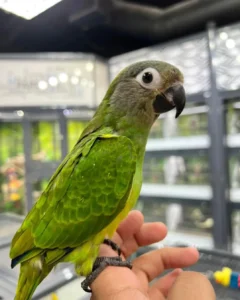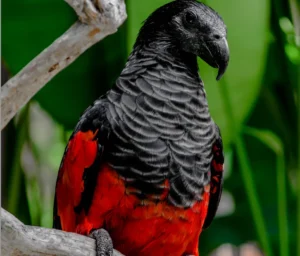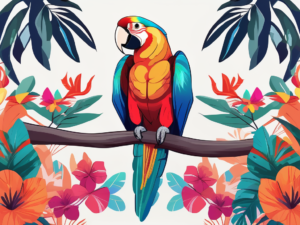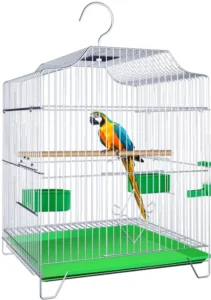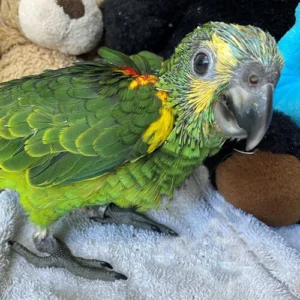Discover the fascinating world of parrots and their remarkable lifespans in our article, “How Long Can Parrots Live: Understanding Their Lifespan.” Uncover the factors that influence their longevity, learn about the different species, and find tips for ensuring your feathered friend lives a long, healthy life.
Parrots are captivating creatures known for their vibrant colors, intelligence, and social nature. While many people desire to have a parrot as a pet, an essential factor to consider is their lifespan. Understanding how long these birds can live and what influences their longevity can ensure that they receive the appropriate care throughout their lives.
The Basics of Parrot Lifespan
The lifespan of parrots varies significantly based on species, care, and environment. Generally, parrots can live anywhere from 10 to 80 years. The average lifespan often correlates with a parrot’s size; smaller parrots tend to have shorter lifespans while larger species may live longer. The right understanding of parrot lifespan can help potential owners make informed decisions about adoption and commitment.
Factors Influencing Parrot Lifespan
Multiple factors play vital roles in determining how long a parrot can live. These factors include:
- Genetics: Just like humans, the genetic makeup of a parrot can significantly affect its lifespan.
- Environment: A safe and stimulating environment can enhance a parrot’s quality of life and longevity.
- Diet: A balanced diet is crucial for maintaining health, thereby influencing lifespan.
- Healthcare: Regular veterinary check-ups and prompt attention to health issues can help prolong a parrot’s life.
Understanding these factors can help owners create a favourable living condition for their feathered companions. For instance, providing toys that encourage mental stimulation and physical activity can significantly reduce stress and prevent behavioral issues, which are common in captive birds. Additionally, ensuring a clean living space free from harmful substances can further contribute to a parrot’s well-being, allowing them to thrive in a nurturing environment.
Average Lifespan of Common Parrot Species
Different parrot species exhibit varying life expectancies. Here’s a brief overview of some common parrot species and their average lifespans:
- Budgerigar: Typically lives 5-10 years, but with exceptional care, some have reached up to 15 years.
- African Grey Parrot: Known for its intelligence, it can live 40-60 years.
- Macaws: Large species like the Blue and Gold Macaw can live 50-80 years.
- Cockatiel: With proper care, they can live about 15-25 years.
As seen, the lifespan can greatly vary among species, highlighting the importance of research before adopting a parrot. Moreover, understanding the specific needs of each species can aid in providing the best care possible. For example, African Grey Parrots require ample social interaction and mental challenges to thrive, while Macaws benefit from larger spaces and more complex toys. This knowledge not only prepares potential owners for the commitment involved but also fosters a deeper bond between them and their avian companions, enriching both their lives in the process.
The Role of Genetics in Parrot Lifespan – How Long Can Parrots Live
Genetics plays a crucial part in the lifespan and overall health of parrots. Just as in humans, specific inherited traits can predispose parrots to certain health issues or longevity. Understanding these genetic aspects is crucial for better care.
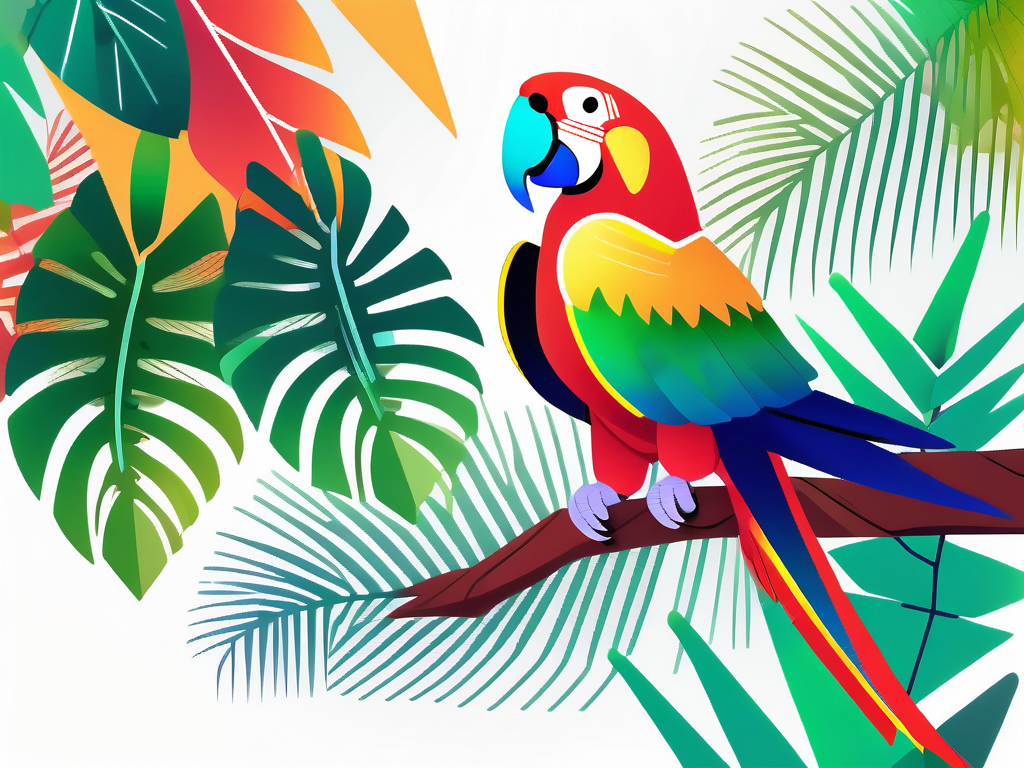
Inherited Traits and Lifespan
Inherited traits can influence various aspects of a parrot’s life, including:
- Immunity: Some parrots may have stronger immune systems which can protect them against diseases.
- Physical Attributes: Traits such as beak strength and feather quality can impact health and longevity.
- Behavioral Traits: Birds that are more social and active may experience better mental health, influencing lifespan.
Edit your breeding selection carefully to avoid common genetic issues and ensure the potential for a longer life. Additionally, understanding the genetic background of a parrot can guide owners in providing tailored care that meets the specific needs of their feathered companions. For example, certain genetic lines may be more prone to conditions like feather plucking or obesity, necessitating proactive measures to mitigate these risks.
Species-Specific Lifespan Expectancies
Different species not only have their own unique traits but also experience differing lifespans due to genetic factors. For instance, smaller species, like lovebirds, tend to live shorter lives than larger species, such as cockatoos or macaws. This inherent variance is crucial for prospective owners to comprehend as they choose which species to bring into their homes. Moreover, the genetic diversity within a species can also play a significant role in their overall health and lifespan. Inbreeding can lead to a higher incidence of genetic disorders, while a genetically diverse population is often more resilient and adaptable to environmental changes.
Furthermore, understanding the evolutionary history of a species can provide insights into their lifespan. For example, species that have evolved in environments with higher predation may have developed faster reproductive cycles and shorter lifespans, while those in safer habitats might have longer lifespans due to fewer natural threats. This evolutionary context can help owners appreciate the natural behaviors and needs of their parrots, leading to better care practices that align with their genetic predispositions.
Impact of Diet on Parrot Lifespan
A well-rounded diet is crucial for maintaining the health and longevity of parrots. Parrots in the wild consume varied diets rich in fruits, nuts, seeds, and vegetables. This diversity is essential to replicate in captivity. In addition to the basic nutritional needs, the way food is presented can also influence a parrot’s willingness to eat and explore new foods. Engaging their natural foraging instincts by hiding food in toys or scattering it around their environment can make mealtime more stimulating and enjoyable.
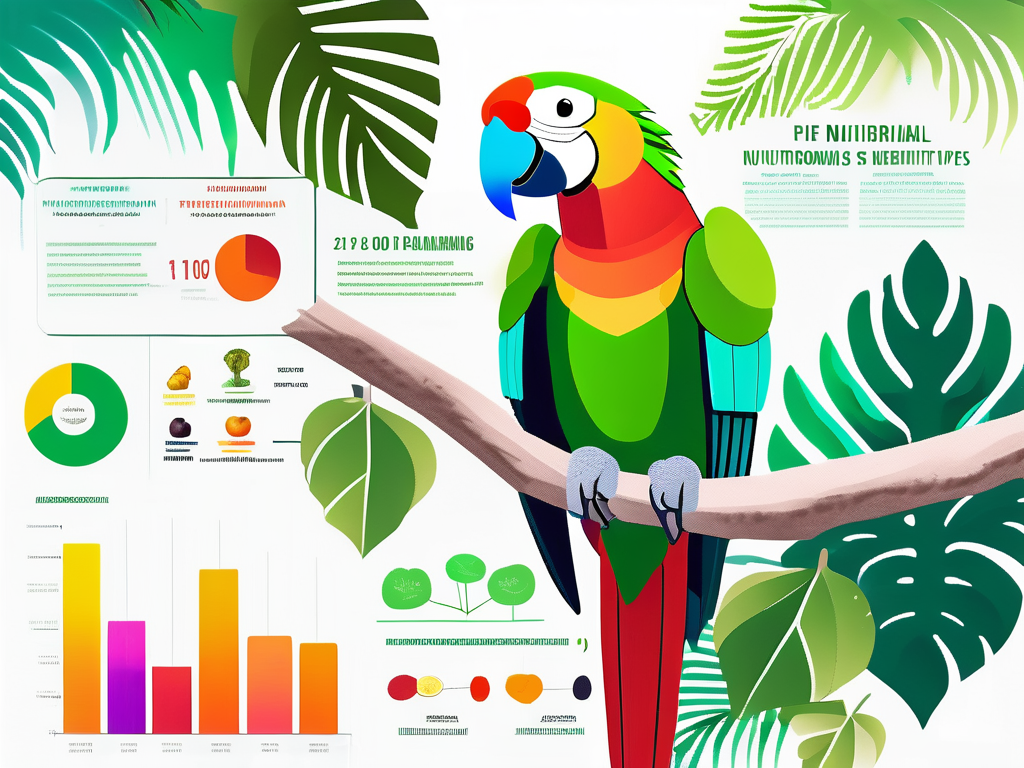
Essential Nutrients for Parrots
Here are some essential nutrients that contribute to a parrot’s health:
- Vitamins: Vitamins A, D, and E are essential for maintaining skin, feather, and immune health.
- Minerals: Calcium, phosphorus, and magnesium play roles in bone health and metabolic function.
- Protein: Important for tissue repair and growth, such as pellets or fresh fruits can be great sources.
Ensuring that a parrot receives a balanced diet can help prevent various health issues and ultimately contribute to a longer lifespan. Additionally, incorporating a variety of textures and colors in their diet can stimulate their senses and encourage them to try new foods, which is vital for their mental well-being. Parrots are naturally curious creatures, and a visually appealing and diverse diet can enhance their overall quality of life.
The Dangers of an Improper Diet
An improper diet can lead to numerous health problems, shortening a parrot’s lifespan significantly. Common issues associated with a poor diet include:
- Obesity: Overfeeding and high-fat diets can lead to obesity, causing numerous health problems.
- Vitamin Deficiencies: Lack of essential vitamins can lead to immune disorders and feather plucking.
- Metabolic Disorders: An imbalanced intake can result in critical conditions affecting the liver and kidneys.
Being mindful of a parrot’s dietary needs is paramount in supporting its overall health. Furthermore, many owners may not realize that certain foods that are safe for humans can be toxic to parrots. For instance, avocado, chocolate, and caffeine can cause severe health issues. Educating oneself about safe and unsafe foods is essential for any parrot owner to ensure their feathered friend remains healthy and vibrant. Regular veterinary check-ups can also help monitor a parrot’s nutritional status and catch any potential issues early on, allowing for timely interventions.
The Importance of Mental and Physical Stimulation
Parrots are highly intelligent creatures that require not only physical exercise but also mental challenges to thrive. A lack of mental stimulation can lead to boredom, which can have detrimental effects on their health.
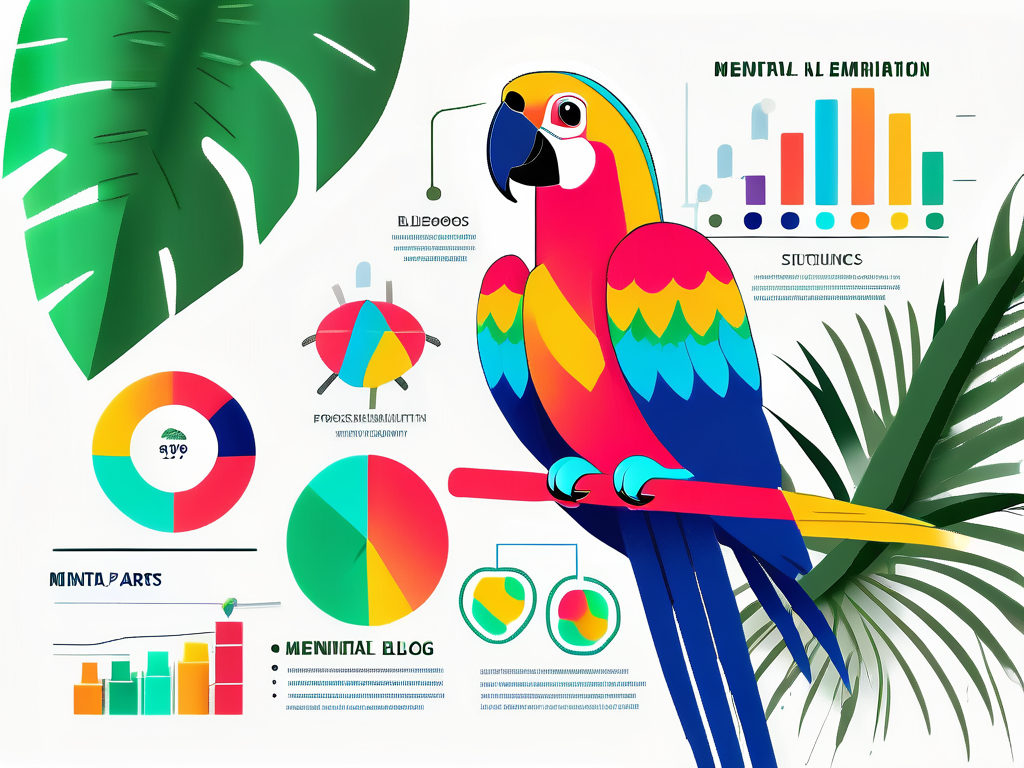
The Effects of Enrichment on Lifespan
Emotional and mental enrichment can significantly impact a parrot’s wellbeing. Engaging toys, puzzles, and interactive games help keep parrots active and stimulated. By providing various forms of enrichment, owners can help their parrots cope with potential stressors and maintain an overall healthy life.
Physical Activity and Parrot Health
Regular physical activity is equally essential for a parrot’s longevity. Encouraging flight, climbing, and even out-of-cage exercise can ensure birds remain fit. The combination of mental and physical stimulation can help in:
- Reducing Stress: Active and engaged parrots tend to be less stressed, which positively affects their lifespan.
- Weight Management: Physical activity prevents obesity and associated health complications.
- Behavior Improvement: Engaged parrots often exhibit fewer behavioural problems, leading to a more harmonious relationship with their owners.
Therefore, owners must dedicate time to provide both mental and physical stimulation for their feathered friends.
Health Care and Regular Check-ups
Regular health care is paramount for ensuring that your parrot lives a long and healthy life. Proactive measures can make a significant difference in a parrot’s overall health.
Common Health Issues in Parrots
Even the best-care practices may not fully shield parrots from health issues. Common problems include:
- Psittacosis: A bacterial infection that can cause serious respiratory problems.
- Feather Plucking: A stress-related behaviour often requiring veterinary intervention.
- Obesity: Linked to heart disease and other complications, obesity can arise from poor diet and lack of activity.
Recognizing these issues and seeking prompt veterinary attention can aid in maintaining a healthy lifespan for parrots.
The Role of Veterinary Care in Lifespan
Routine veterinary check-ups are crucial for early detection and treatment of potential health conditions. Vets can provide valuable recommendations in terms of diet, environmental conditions, and potential vaccinations. A good veterinarian will also provide advice tailored to your specific parrot species, enhancing the pet’s life quality. Staying proactive about a parrot’s health can dramatically influence its lifespan.
In conclusion, understanding a parrot’s lifespan involves knowing various influential factors, from genetics and diet to mental stimulation and veterinary care. By providing suitable care and attention, you can foster a long, healthy, and vibrant life for your feathered companion.
